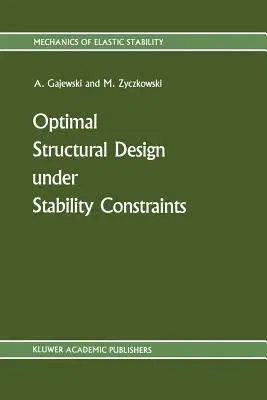Antoni Gajewski
(Author)Optimal Structural Design Under Stability Constraints (Softcover Reprint of the Original 1st 1988)Paperback - Softcover Reprint of the Original 1st 1988, 6 October 2011

Qty
1
Turbo
Ships in 2 - 3 days
In Stock
Free Delivery
Cash on Delivery
15 Days
Free Returns
Secure Checkout
Part of Series
Mechanics of Elastic Stability
Print Length
470 pages
Language
English
Publisher
Springer
Date Published
6 Oct 2011
ISBN-10
9401077371
ISBN-13
9789401077378
Description
Product Details
Authors:
Book Edition:
Softcover Reprint of the Original 1st 1988
Book Format:
Paperback
Country of Origin:
NL
Date Published:
6 October 2011
Dimensions:
23.39 x
15.6 x
2.49 cm
ISBN-10:
9401077371
ISBN-13:
9789401077378
Language:
English
Location:
Dordrecht
Pages:
470
Publisher:
Weight:
675.85 gm

